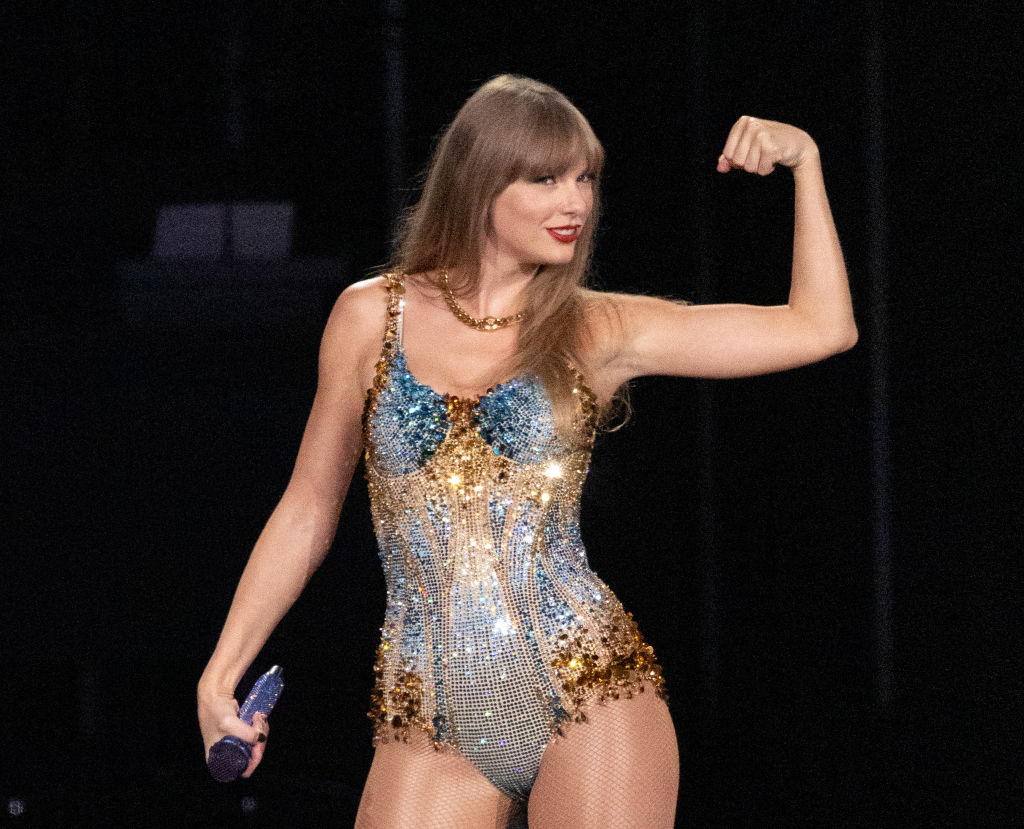“Lucian is cool, but Lucian don’t write.” So says Jay-Z in “Moonlight”, a 2016 song bemoaning the commercial naiveté of his fellow rappers. Lucian is Lucian Grainge, CEO of Universal Music Group, the world’s biggest record label. Jay-Z wants fellow MCs to stop signing over their rights to these suits. Lucian might be a smooth operator, he’s saying, but he can’t compose songs like you can.
Maybe not — but Grainge can compose one hell of a contract. A north Londoner by birth, the 64-year-old owns the company that controls about a third of the world’s music. He is, according to Bono, a “ruthless f**ker”; he once boasted he could “sign somebody on a park bench”. Innumerable stars are signed to Universal: Elton John, Drake, Ariana Grande, Adele, U2. Another is Taylor Swift. But Swift is not like the others. She’s not quite like anyone.
On Thursday, a number of Swift’s songs returned to TikTok, where music can be used to soundtrack videos and sometimes goes viral. These songs, along with the entirety of Universal’s catalogue, had been scrubbed from the app on 31 January after the label said it was unhappy with the compensation the platform offered in exchange for the music: a “low single-digit” percentage of TikTok’s advertising revenue, insiders tell the Financial Times, compared to the approximate 20% paid by YouTube.
Another issue was AI. TikTok wanted to share its royalty payouts with fans who put AI-generated music on the platform. Universal thought this would dilute the money going to its own artists. Grainge, who once walked out of an A-level exam to negotiate his first record deal, decided to hit the big red button and sever Universal’s relationship with TikTok completely. An exchange of spicy open letters followed. Universal accused TikTok of bullying, and of failing to provide “fair value for the music”. TikTok accused Universal of putting “their own greed above the interests of their artists and songwriters”.
This spat is a big deal. It’s ended the long peace that has reigned for years in the music industry. A decade ago, when Grainge was only three years into his tenure at Universal, things were bleak. Illegal file-sharing had caused recorded music revenues to plummet from $23 billion in 2001 to an existential low of $14 billion in 2014. Then a band of plucky Swedes rode in. Music streaming, dominated by the Stockholm-based Spotify, almost single-handedly revived the industry.
Since 2014, revenues have risen every year. In 2023, they reached a record $28.6 billion, of which 67% comes from streaming services such as Spotify and Apple Music. Universal’s revenues have gone up every year since 2014 too. The rise of TikTok, and the associated looming danger of AI, may be about to bring this idyllic period to an end.
But what is Swift up to? She’s no stranger to hardscrabble negotiation: between 2014 and 2017, she withdrew her music from Spotify, saying she was “not willing to contribute my life’s work to an experiment”. That fact she’s now blithely removed herself from a similar, label-wide embargo is telling of her current exceptionalism. She was the most-streamed artist in the world last year, and the year before. Her superlative Eras concert tour was the first to ever make a billion dollars in revenue, and it’s on track to double that on the ongoing 2024 leg.
And thanks to a 2018 deal with Universal, she (unlike most artists) owns the copyright to her recordings, giving her the power, as with this TikTok development, to zig where her label zags. Possibly, Swift’s calculation is that the app’s promotional power outweighs its relative meagreness as an income stream — given she’s reportedly making at least $10m per show, liquidity is probably not a concern. What is definite is her supremacy at the top of pop. This latest move only reinforces it.











Join the discussion
Join like minded readers that support our journalism by becoming a paid subscriber
To join the discussion in the comments, become a paid subscriber.
Join like minded readers that support our journalism, read unlimited articles and enjoy other subscriber-only benefits.
Subscribe